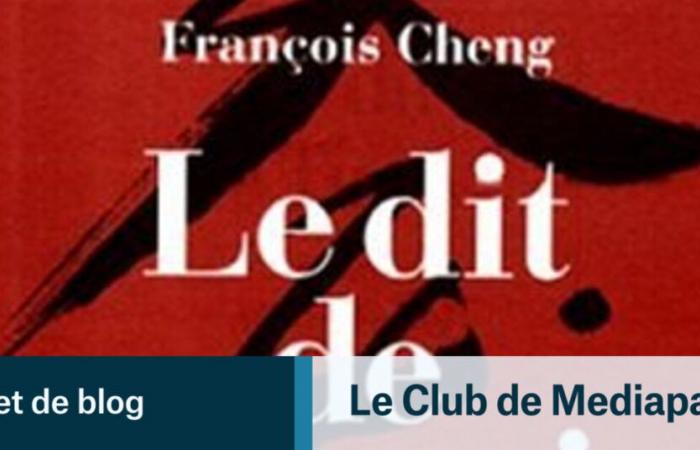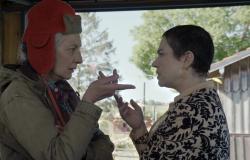It was thanks to Elisabeth Souny Selva and her literary blog “French Voyage” that I took an idea of reading François Cheng. Contact had been established by Panaït Istrati. So go for François Cheng, a writer to discover in his eyes. China is at the heart of multiple debates, it scares or seduces. In fact, very few people know. Cantonese rice and spring rolls, Lyon versions, are not everything!
Pupil applied (everything happens!), So I opt for the first advice of Elisabeth Souny Selva, “the said of Tiany”. A good little pavement that leads the reader through this immense country, often on foot, alongside two other friends from Tiany: Yumei, and Haolang.
The writing is pleasant, and it is above all a trip in history, in a culture that takes us away from our Western daily life. I will not make a precise and applied review of this rich novel, which must be discovered by taking the time necessary to follow the itinerary of a painter, Tiany, who goes through France, Italy, the Netherlands, for painting in particular. He also makes a little literary detour by Romain Rolland who can only please me … Following this trio eager to live, to discover, to travel, it is also following pages of friendship, of love. And a less sympathetic passage through the war between China and Japan, then of course by the Chinese revolution and the advent of “new society”.
The novel then takes on another, harder turn, because the revolution is hard for the people. The executives supervise, and the people in fact only concern: survive. But it is hard to survive if you have principles, if you want to remain faithful to an ideal that is not the ideal of executives, precisely.
-I do not wish to enter the detailed evolution of the novel. You just have to read it, simply! I want to make you peak some seeds discoveries throughout these pages: p. 298: “Happiness separates. The misfortune brings together. »An index in the evolution of the novel? Yes and no. Rather an index on our lives as they go … P. 370: “What we have left, write”. This is what I feel, this need to write a few lines after such a flood of feelings, feelings, descriptions of a country that I do not know, but that I apprehend much better after this reading. I am aware that China described by Tiany and current China are undoubtedly very different. But I have this need to sleep some thoughts. A few pages from the end (p. 409), Tiany evokes the magic potion of the “little red book”. François Cheng, meanwhile, succeeds in writing a book on China without ever quoting Mao. Just a little evocation of the workers’ outfit in “their Mao costume”. A recent program on China, on Arte (about “Tiktok”) spoke of Xi Jinping like the new Mao. In 2025, no need for a small red book. Social networks do the rest … Magic potion, indigestible potion. To everyone to judge.
I moved away from the book? I don’t think. François Cheng, in this book, walked his readers, said in his own way “an entire dream that is not yet within reach of humanity” (p. 402). In these pages, this dream was accompanied by the love and friendship of the trio made up of the painter, the friend, the lover. And the harshness of Chinese Siberia, a ruthless diet for dissidents.
Whatever the future of China, under Xi Jinping and afterwards, we will have painting, love and friendship. And the lines of writers so that the world does not forget the fate of dissidents.
Given by a Maoist activist in Lyon, in 1972/73. Thank you Christian.
Enlarge the image: Illustration 2
Enlarge the image: Illustration 3






